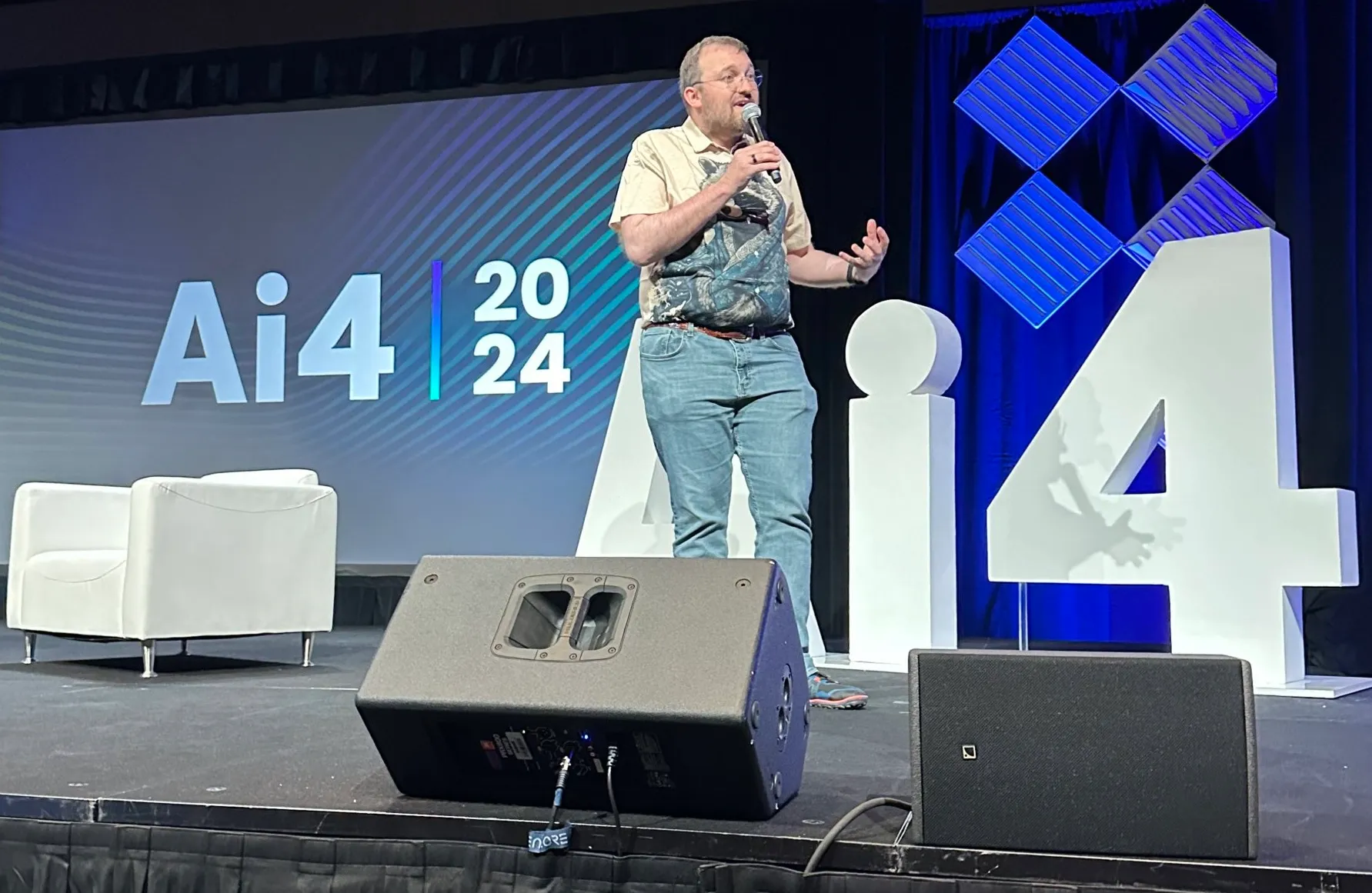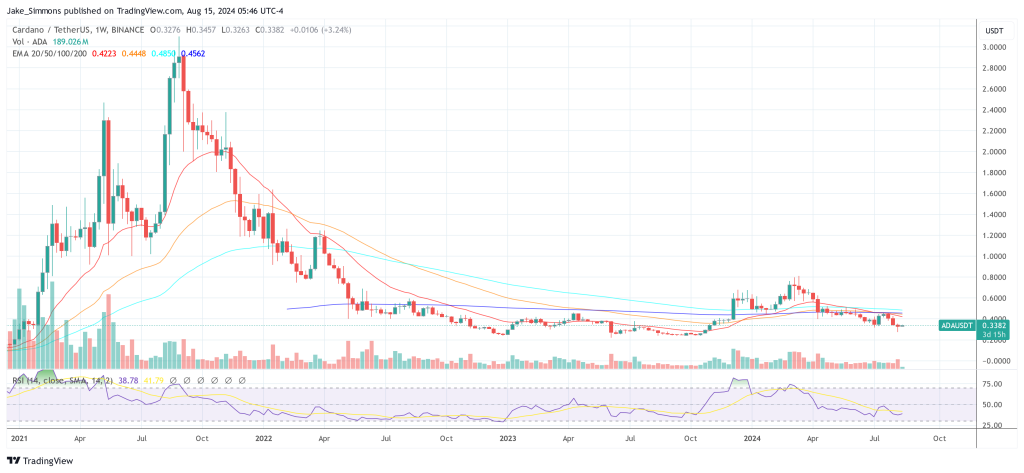
At the Ai4 2024 conference held at MGM Grand, Las Vegas from August 12-14, Cardano founder Charles Hoskinson held a speech, focusing on the challenges of merging blockchain and AI. Romain Pellerin, CTO at Input Output, summarized the most significant points from Charles Hoskinson’s keynote speech via X.
Cardano Founder: How To Merge AI And Blockchain
Hoskinson argued that blockchain could fundamentally underpin AI by providing a decentralized marketplace for data, models, and inference, thereby serving as an essential incentive and trust layer. “AI could leverage blockchain as an incentive & trust layer to build decentralized marketplaces for data, models and inference,” Pellerin quoted Hoskinson as saying.
Governance issues, particularly in how decentralized technologies like blockchain and AI manage autonomy and control, were a significant focus of Hoskinson’s speech. “Both blockchain and AI grapple with governance issues, particularly in decentralizing and disintermediating infrastructures, posing parallel challenges for the industry, Hoskinson said.
He pointed out the parallel challenges faced in both fields, underscoring the need for innovative governance that facilitates decentralization while ensuring efficient management and integrity. “AI’s reliance on vast data and computing power presents challenges in data collection and sharing. Tokenization and incentives may offer solutions,” the Cardano founder stated.
Hoskinson also touched on the significant challenges of data privacy within AI, advocating for advanced solutions such as fully homomorphic encryption to ensure data can be processed without compromising privacy. This, he noted, could enable truly private smart contracts and secure data exchanges.
The Cardano founder further discussed regulatory and philosophical challenges both technologies face. As Pellerin relayed, “Blockchain, AI, quantum computing, and synthetic biology all face similar regulatory and data ownership challenges.” Hoskinson emphasized the importance of aligning these technologies within ethical and legal frameworks to ensure responsible development and deployment.
Practical applications of blockchain within AI contexts, such as royalty management and vehicle identity systems, were highlighted by Hoskinson as areas where blockchain can manage complex computations and enable new functionalities. However, there are challenges. “Integrating AI and blockchain is hindered by technical incompatibility and the first-mover problem, but complementary solutions could emerge, addressing these challenges. Blockchain could secure data and reduce hacking incidents, addressing the neglected data economy in the West, now dominated by monopolies,” Hoskinson explained.
In summarizing Hoskinson’s keynote, Pellerin concluded with a reflection on the technical and philosophical challenges of merging these potent technologies. “Merging blockchain and AI presents significant challenges but also opens up opportunities for innovation. From governance and data privacy to decentralized marketplaces and ethical concerns, the intersection of these technologies requires careful coordination and incentives alignment to unlock its full potential.”
At press time, ADA traded at $0.3382.

